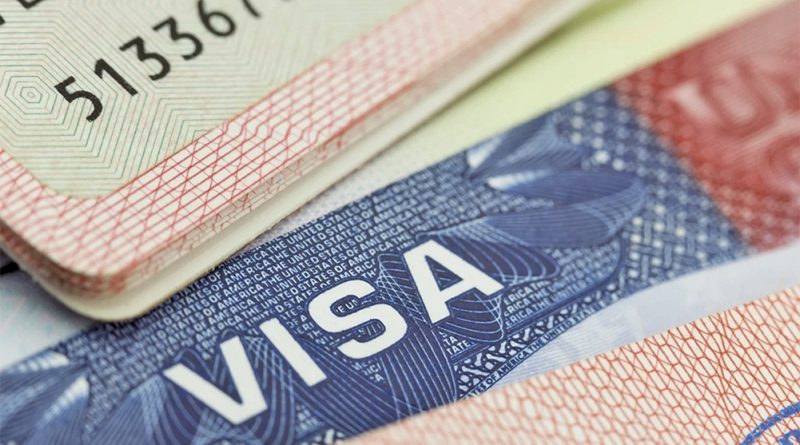EEUU congeló emisión de algunos visados hasta 2021 / Trump ‘extending and expanding’ crackdown on work visas through year-end
«Como parte de nuestros esfuerzos por la recuperación de ‘Estados Unidos primero’, el presidente ha decidido suspender ciertos tipos de visados hasta final de este año», anunció un alto funcionario de la Administración estadounidense en una llamada con periodistas organizada por la Casa Blanca.
El Gobierno justificó que esta decisión tiene como objetivo «maximizar las oportunidades para los trabajadores estadounidenses de encontrar empleo», en unos momentos en los que el índice de desempleo en el país se encuentra en el 13,3 %.
En este sentido, argumentó que existen compañías en Estados Unidos, como el gigante de entretenimiento Disneyland o la telefónica AT&T, entre otras, que utilizan un mecanismo de subcontrataciones de empleados extranjeros que limitan las posibilidades de trabajo para los nacidos en el país.
La medida es en parte una extensión de la decisión que tomó Trump en abril de suspender la emisión de permisos de residencia permanente para inmigrantes, conocidos como «green card», como consecuencia de la destrucción de empleo sin precedentes provocada por la pandemia de COVID-19.
Entre los visados afectados se encuentran el H-1B, que está diseñada para ciertos trabajadores cualificados, como los empleados en la industria tecnológica; el H-4, que son para las parejas de estos empleados; así como visados L-1, que están destinados a directivos que trabajan para grandes corporaciones.
Los permisos de empleo H-2B, para trabajadores de los sectores hoteleros y de construcción, y los J-1, que son para investigadores y profesores de investigación y otros programas de intercambio de trabajo, como las becas o las niñeras, también se verán paralizados hasta enero.
En principio, esta medida no afectará a los trabajadores extranjeros que se encuentran ya en Estados Unidos.
Sin embargo, sí impactará a cientos de empresas y miles de personas, ya que en el año fiscal 2019, EE.UU. otorgó el visado H-1B a unos 130.000 trabajadores; el L-1a 12.000; y el H-2B a más de 98.000 empleados.
EFE
Trump ‘extending and expanding’ crackdown on work visas through year-end
The Trump administration will expand its crackdown on foreign workers by freezing most access to several types of work visas amid historically high unemployment in the United States.
The new policy is “extending and expanding” on President Donald Trump’s April pause on issuing new green cards, which will continue beyond the initial 60-day period until the end of the year, according to a senior administration official.
Trump will sign an executive order on Tuesday directing new restrictions on most H-1B, H-4, H-2B, J and L visas, with some exceptions, lasting through Dec. 31 – “frankly, because of the expanding unemployment,” the official told reporters.
The official said there would be few exceptions to the new rules. Some H-2B applicants working in the food supply chain will be exempt. All working L and virtually all J visa applications – excluding professors, scholars and au pairs – will be affected by the new policy.
But the official argued that the changes were necessary because of the economic effects of the coronavirus pandemic, claiming that the new restrictions would save 525,000 American jobs.
Trump announced in April that he would freeze the distribution of green cards to most applicants, with the exception of farm workers and the immediate family members of American citizens. Those exemptions remain in place.
While characterizing the new work visa restrictions as “temporary,” the official said that the president’s executive action on Tuesday would also include more long-term measures.
“The more permanent action that he’s directing us to take is reforming the H1B system to move toward a more merit-based system,” the official told reporters in a telephone briefing. “The president has instructed us to get rid of the lottery and replace it with ranking the salaries.”
The official said that the secretary of labor would also use existing, yet dormant statutory authorities “to investigate abuses in the H-1B space,” including allegedly discriminatory practices.
The administration will also begin requiring biometric data for all visa holders “prior to entry.”
Currently, the official said, “it is not a uniform set of checks before people arrive.”
BY MICHAEL WILNER

